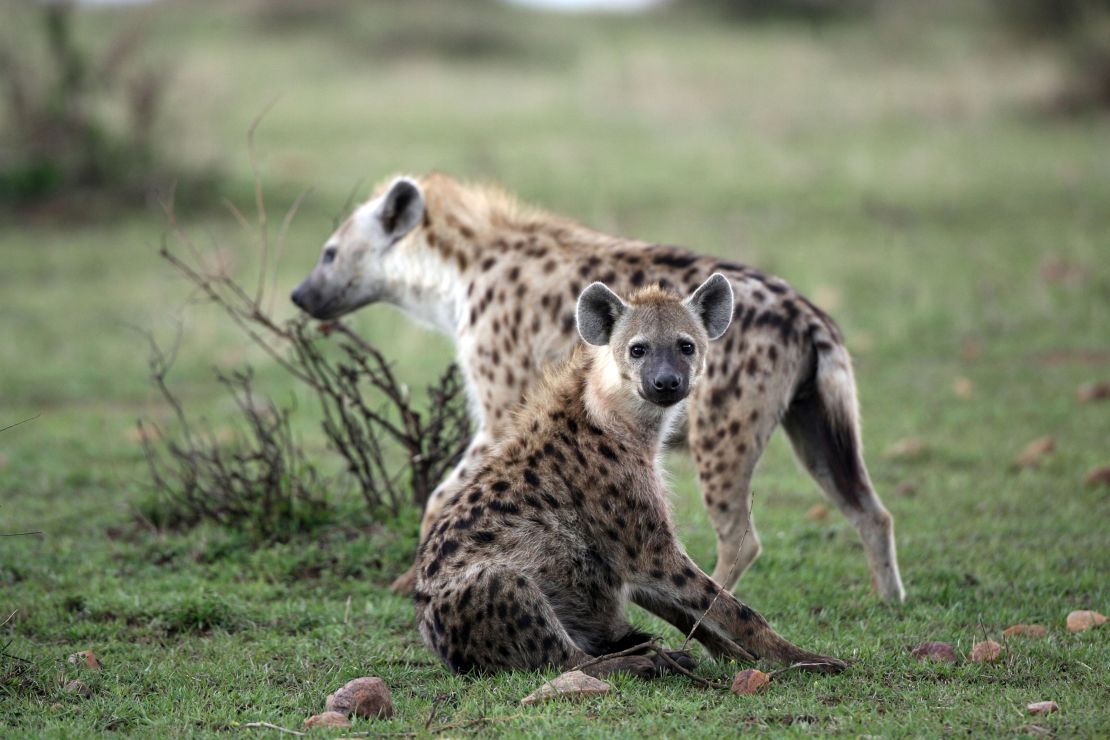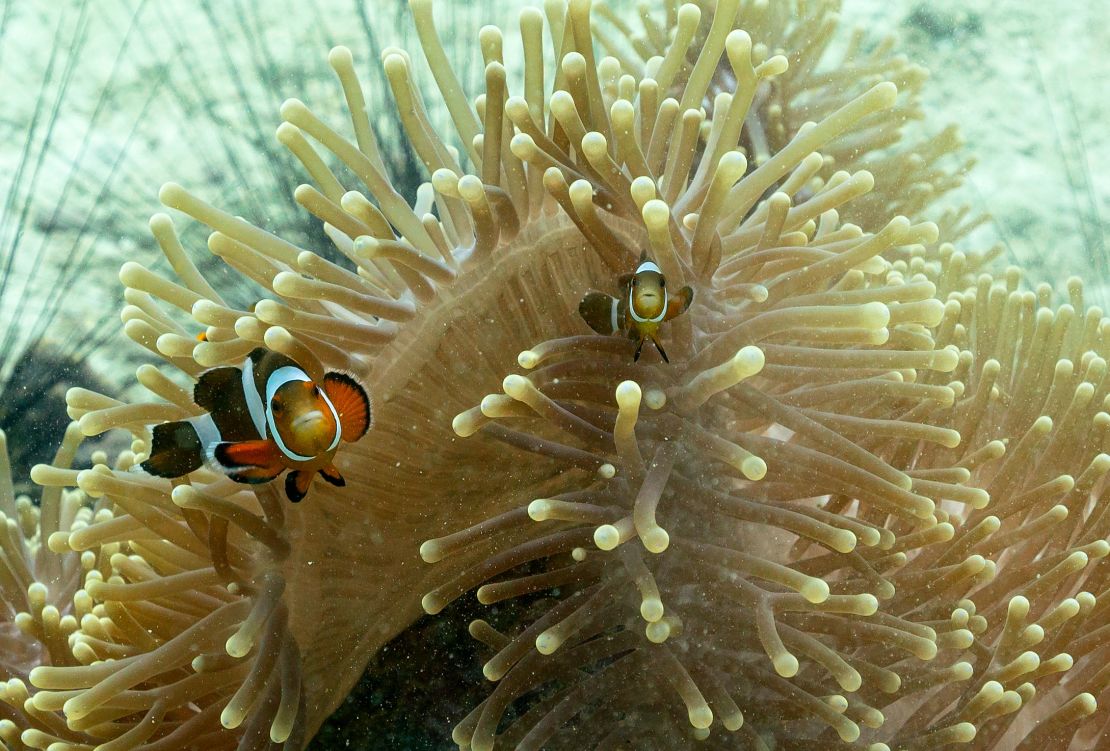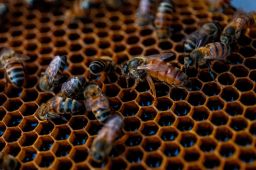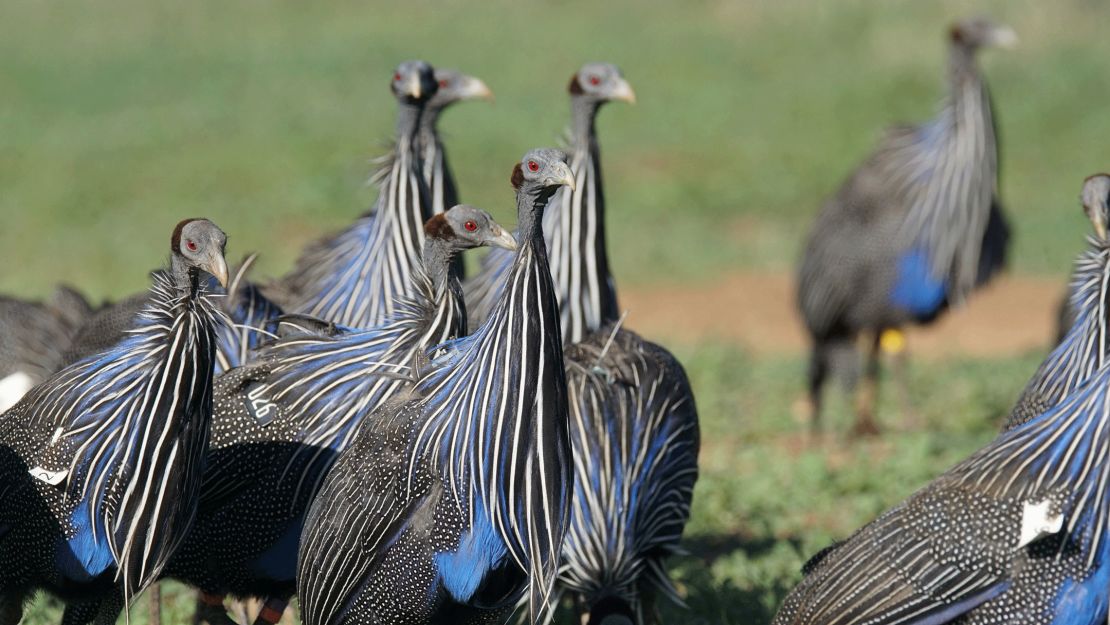Bees, chimps, clownfish and hyenas all live in groups with a leader or dominant individual. So do many other animals. How does power shift from one animal to another?
The transfer of power is sometimes not that simple.
As the United States inaugurates a new president on Wednesday, here’s a look at the different ways the animal kingdom handles changes in leadership.
Brute force
For chimpanzees, our closest living relatives, a change in the alpha male can be a fairly brutal affair.
“So in human societies, especially liberal democracies, we have this idea of a leader that is looking beyond their own interest, somebody who is thinking about the interests of the group as a whole, and I think that leadership in many, maybe most, group-living animals isn’t that,” said Michael Wilson, an associate professor in the departments of anthropology and ecology, evolution and behavior at the University of Minnesota in Saint Paul.
“In chimpanzees, especially, it’s more a matter of individuals bullying their way to the top of the hierarchy and getting what they want.”
Wilson worked in Gombe National Park in Tanzania, where primatologist Jane Goodall had previously studied chimps. There he observed Frodo, a particularly fearsome and aggressive alpha male. Some males like Frodo, Wilson said, are able “to maintain power by being big and mean, but it’s usually the case in chimpanzee society that males need some political support from other males.
“That’s something that Frodo’s brother Freud did while he was in power – he spent more time grooming other males and kind of building a coalition to keep himself in power.”
An alpha male is usually able to hold the position for three to five years. At that point, a younger male would likely make a challenge such as shaking the tree the alpha might be sleeping in and generally behaving aggressively. Sometimes, the challenge is violent; in rare cases, the alpha ends up dead.
“Male chimpanzees who have been defeated sometimes throw a tantrum. This kind of behavior is seen in adult males who have trouble accepting the situation. They go into depression or don’t eat,” said Frans de Waal, a professor emeritus at Emory University in Atlanta and author of the book “Chimpanzee Politics.”
Most ultimately do accept the new alpha, however, including Frodo, who in his retirement appeared largely uninterested in social interaction and spent nearly all of his time searching for food.
Generation game
In some female-dominated animal groups, different behavior is at play.
One of Africa’s top predators, spotted hyenas assume the social ranks of their mothers. When the queen, or alpha female, dies, her youngest daughter simply assumes her position, usually without any disputes within the group, said Jenn Smith, an associate professor of biology and chair of the biology department at Mills College in Oakland, California.

Should conflicts emerge, females use their unusual pseudo-penises – enlarged genitalia – to resolve fights during ritualized greeting ceremonies. The hyenas stand side by side sniffing each other, which reinforces social bonds before a potentially risky task.
Meanwhile, in warm water reefs and lagoons, clownfish (think “Nemo”) transfer power in a particularly unusual way. The female is the largest fish within a group. When she dies, the largest male in the group changes sex to become the new breeding female. This transition of power is built into their biological code and is irreversible.

The vast majority of animals are ultimately able to engineer a peaceful switch, Smith said.
“Natural selection favors mechanisms that promote a peaceful transfer of power. These solutions vary widely across societies but favor those individuals best able to survive and reproduce. Nature is excellent at optimizing solutions and making processes such as this efficient. Basically, if animals get it wrong they could die and that solution is tossed out over evolutionary time.”
Bee fight club
In insect societies, including many ants, bumblebees and wasps, when the queen dies the colony dies with her, said Francis Ratnieks, a professor at the Laboratory of Apiculture and Social Insects at the University of Sussex in Brighton, United Kingdom.

“There’s no issue of replacing the queen. Bumblebees, they have a colony which lasts a summer and the colony and the queen will fizzle out at same time.”
Not all queens have such short reigns, he explained, with some queens of common ant species living up to 20 years in ideal conditions.
Honeybees do replace their queens if they are getting old and running out of steam, he said. “They typically just rear one queen. And this young queen will then mate and frequently she’ll be laying eggs alongside the old queen so this is a very tranquil process of queen replacement.”
However, in some cases, such as when a honeybee colony splits into two, the process can be more fraught, he said.
“The mother queen, the old queen, goes away with the swarm of bees and they establish a new colony, leaving the colony with no queen.”
This leaves the old colony in a state of flux, with potential new queens still larvae and pupae.
“The first queen to become an adult, she may try to kill the other queens before they’ve reached adulthood. It’s like the knives are out,” Ratnieks said. “And in some cases the workers try to stop the fighting.”
Leadership isn’t dominance
Often leadership and being the dominant female or male in a group are very different things, said Damien Farine, a professor in the department of evolutionary biology and environmental studies at the University of Zurich.

He explained that leadership – in terms of deciding where a group goes for instance – is much more fluid in many animal groups, including primates, and often stands in contrast to dominance, which gives priority access to resources such as mates, food and the best sleeping sites. Dominance remains with one individual for years at a time, whereas leadership tends to last for shorter periods.
“Transfer of power is common in the context of leadership, but often rare in terms of dominance,” said Farine, who also works at the Max Planck Institute of Animal Behavior in Germany.
His team has studied the dynamics of vulturine guineafowl – a distinctive large bird native to savannahs of East Africa. Working together as a group is critical for these birds, as their bright plumage makes them easy targets for predators.
The researchers found that the individuals deciding where the group moved to next was dependent on the actions of the dominant members of the group. When dominant individuals monopolized a particularly rich food patch, the excluded subordinates worked to move the group away from that spot, ultimately forcing the dominants to abandon a rich source of food so that the group as a whole might benefit from a different feeding area.
“Where the group goes requires all individuals to reach consensus, and a large number of subordinates can easily over-ride the dominant’s preference,” Farine said via email.







